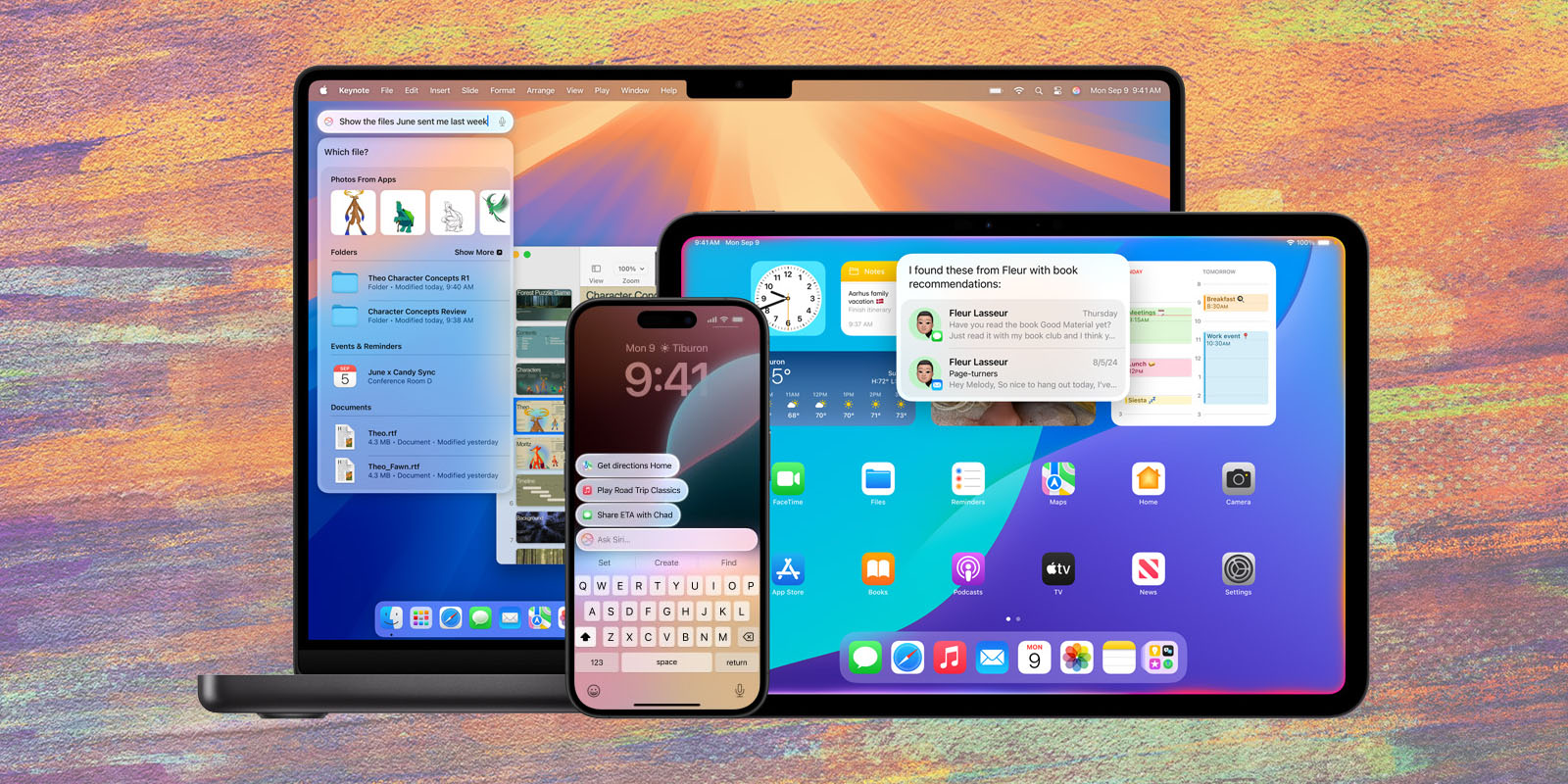Apple's LLM Siri: A Comeback Strategy?

Table of Contents
Apple's LLM Investment and Siri's Technological Evolution
Apple's commitment to artificial intelligence is well-documented, and integrating LLMs into Siri's core functionality seems like a natural progression. This move could finally address many of Siri's long-standing shortcomings.
Integrating LLMs into Siri's Core Functionality
Apple's likely approach involves deeply integrating LLMs into Siri's architecture. This could manifest in several key improvements:
- Improved natural language understanding: LLMs excel at interpreting nuanced language, allowing Siri to understand complex requests and subtle contextual cues.
- More context-aware responses: Siri could maintain conversation context across multiple turns, leading to more natural and engaging interactions.
- Enhanced conversational abilities: Expect more fluid and engaging conversations with Siri, moving beyond simple commands to genuine dialogue.
- Advanced search capabilities: LLMs can enhance Siri's search functionality, providing more relevant and insightful answers to complex queries.
These advancements would translate to a significantly improved user experience, characterized by more accurate responses, personalized experiences tailored to individual preferences, and more efficient task completion. While Apple hasn't publicly detailed its specific LLM investments for Siri, rumors and job postings strongly suggest significant efforts in this area.
Addressing Past Siri Shortcomings
Past criticisms of Siri often centered on:
- Inaccurate information: Siri frequently provided incorrect or irrelevant information.
- Limited contextual understanding: Siri struggled to understand the context of conversations, leading to frustrating misunderstandings.
- Difficulty with complex tasks: Siri's ability to handle multifaceted tasks was limited.
- Lack of personalization: Siri's responses were often generic and lacked personalization.
LLMs can directly address these limitations. Their ability to process vast amounts of data and learn complex patterns makes them ideal for improving Siri's accuracy, understanding context, and providing personalized responses. Improving Siri accuracy and creating a truly personalized AI assistant are key to regaining user trust.
The Role of Apple's Ecosystem
The integration of LLMs into Siri gains significant power within Apple's tightly integrated ecosystem.
- Seamless integration with other Apple devices and services: Siri could seamlessly access and interact with other Apple devices and services like Messages, Calendar, and Music.
- Privacy considerations: Apple's strong commitment to user privacy could be a major selling point, contrasting with the data-heavy approaches of some competitors.
- Access to Apple's vast data resources: Apple possesses a wealth of user data that, when used responsibly, could further enhance the performance of its LLM-powered Siri.
This ecosystem integration provides a significant competitive advantage. The seamless synergy between Siri and other Apple services creates a highly cohesive and user-friendly experience unmatched by other voice assistants. Apple's strong emphasis on Apple ecosystem and Siri integration, coupled with Apple privacy, will appeal to consumers concerned about data security.
Market Competition and Apple's Comeback Strategy
The voice assistant market is fiercely competitive, requiring a strategic approach for Apple to regain market share.
Analyzing the Competitive Landscape
The current market is dominated by Google Assistant and Amazon Alexa, each boasting substantial market shares. However, these assistants have their weaknesses: Google Assistant sometimes struggles with privacy concerns, while Amazon Alexa's integration outside the Amazon ecosystem is less seamless.
An improved Siri, powered by LLMs, could differentiate Apple through superior natural language processing, a focus on privacy, and tighter integration within the Apple ecosystem. This will be key in the voice assistant market share competition and a decisive factor in competitor analysis.
Potential Marketing and User Acquisition Strategies
Apple's marketing campaign for the revamped Siri should highlight its improved capabilities, focusing on user experience and ease of use. The following strategies could be employed:
- Highlighting the improved capabilities: Showcase Siri's enhanced natural language understanding, contextual awareness, and conversational abilities.
- Focusing on user experience and ease of use: Emphasize the intuitive and user-friendly nature of the new Siri.
- Emphasizing privacy and security: Reinforce Apple's commitment to user privacy and data security.
Attracting new users and re-engaging existing users will require a multi-pronged approach, including targeted advertising, partnerships, and showcasing Siri's capabilities in innovative ways. Effective Siri marketing and user acquisition strategies are crucial for a successful comeback. The focus should be on AI assistant marketing tailored to highlight the improvements over its competitors.
Challenges and Potential Hurdles
Despite the potential, integrating LLMs into Siri presents several challenges.
Technical Challenges
- Computational resources: Training and deploying large language models requires substantial computational resources.
- Data privacy concerns: Handling user data responsibly and ethically is paramount.
- Ensuring model reliability and safety: LLMs need to be carefully trained and monitored to avoid biases and harmful outputs.
Overcoming these challenges will require significant investment in infrastructure, expertise, and robust testing procedures. Successful LLM deployment and AI model training require careful planning and execution, as does addressing data privacy in AI.
User Adoption and Acceptance
Successfully integrating LLMs into Siri requires more than just technological advancements; it necessitates addressing user adoption and acceptance.
- Overcoming user skepticism: Some users may be skeptical of AI assistants after negative past experiences.
- Educating users on the new features: Apple needs to effectively communicate the improvements and benefits of the new Siri.
- Addressing user concerns about privacy and data security: Transparency and reassurance are crucial to alleviate privacy concerns.
Effective communication, user education, and a demonstrably improved user experience are vital for achieving widespread user adoption. Understanding technology adoption patterns and optimizing user experience (UX) will be instrumental in securing positive user response.
Conclusion: Is Apple's LLM Siri a Winning Formula?
Apple's strategy to revitalize Siri using LLMs presents a compelling case for a comeback. By addressing past shortcomings and leveraging the power of its integrated ecosystem, Apple could create a truly superior voice assistant. However, significant technical and user adoption challenges remain. Only time will tell if Apple's investment in LLM technology will truly revitalize Siri. However, the potential for a significant comeback with an improved Siri, powered by LLMs, is undeniable. We encourage you to share your thoughts on Apple's strategy and the future of Siri in the comments below. What are your expectations for the future of Siri AI?

Featured Posts
-
 Eurovision 2025 Finalists A Ranking From Hypnotic To Atrocious
May 20, 2025
Eurovision 2025 Finalists A Ranking From Hypnotic To Atrocious
May 20, 2025 -
 6 Billion Investment Public Works Ministrys Sea And River Defense Projects
May 20, 2025
6 Billion Investment Public Works Ministrys Sea And River Defense Projects
May 20, 2025 -
 First Food Shipments To Gaza In Months After Israeli Decision
May 20, 2025
First Food Shipments To Gaza In Months After Israeli Decision
May 20, 2025 -
 Pro D2 Predictions Et Apercu Des Matchs Colomiers Oyonnax Et Montauban Brive
May 20, 2025
Pro D2 Predictions Et Apercu Des Matchs Colomiers Oyonnax Et Montauban Brive
May 20, 2025 -
 Actualizacion Sobre La Salud De Michael Schumacher Una Noticia Que Conmueve
May 20, 2025
Actualizacion Sobre La Salud De Michael Schumacher Una Noticia Que Conmueve
May 20, 2025
Latest Posts
-
 Understanding The Recent Big Bear Ai Bbai Stock Price Decrease
May 20, 2025
Understanding The Recent Big Bear Ai Bbai Stock Price Decrease
May 20, 2025 -
 Big Bear Ai Bbai Penny Stock Potential And Risks
May 20, 2025
Big Bear Ai Bbai Penny Stock Potential And Risks
May 20, 2025 -
 The 2025 Big Bear Ai Bbai Stock Dip Causes And Potential Recovery
May 20, 2025
The 2025 Big Bear Ai Bbai Stock Dip Causes And Potential Recovery
May 20, 2025 -
 D Wave Quantum Qbts Stock Market Performance A Detailed Analysis Of The Recent Increase
May 20, 2025
D Wave Quantum Qbts Stock Market Performance A Detailed Analysis Of The Recent Increase
May 20, 2025 -
 Big Bear Ai Holdings Inc Securities Lawsuit Filed
May 20, 2025
Big Bear Ai Holdings Inc Securities Lawsuit Filed
May 20, 2025
